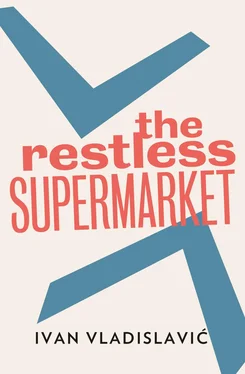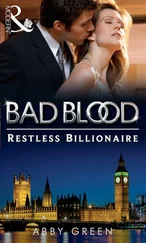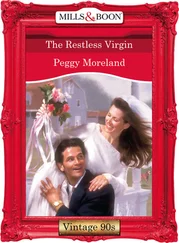One evening, a brief part of one evening, stands out in my mind now as a turning point. Not the turning point, not the spilkin that unlocks the whole puzzle, but a key nevertheless, as significant as the discovery of a Merope in High Point.
I had been detained that day at the General Hospital, queuing interminably for my pills, and darkness was falling by the time I alighted from my bus in Edith Cavell Street. Meissner’s Building rode at anchor in the traffic like an ocean-going liner. I remember glancing up at the windows of the Europa, aglow between the columns of brocade, and feeling a comforting sense of anticipation. It was winter and I was looking forward to the heaters and, dare I say it, the warmth of human fellowship.
But as I stepped onto the escalator, there was a commotion on the first floor. A drunkard, a young black man in a shiny suit, appeared at the top of the escalator, and with an unprintable curse, hurled himself down it. The stairs were going in the other direction, bearing him back ceaselessly to the top, where they should soon have deposited him in the mechanical course of events. But he applied himself to the task of plunging downwards with such maniacal energy that he managed to make headway and bore slowly down upon me.
He seemed oblivious of me. As if I was invisible. There was nothing I could do, a man of my age, not exactly frail but necessarily careful, what with the blood pressure and the spastic colon (which pains me all the more acutely, thanks to my vocation); I could hardly be expected to flee. I did take a few precautionary steps backwards down the moving stairs, to no avail. I rose relentlessly.
A nightmare. Imagine: me, Aubrey Tearle, stepping calmly backwards, while rising swiftly and effortlessly into the air; and him, the nameless ruffian, panting and crying out in a fury of exertion, while sinking by painful degrees. Herr Toppelmann once had a clock whose hands sped backwards, trying in vain to erase the motto printed across its face: Manchmal geht alles verkehrt — which Toppelmann did into English as ‘On several occasions, everything is going wrong’ — and it alarmed me in quite the same way. Could there be a more disquieting concept, one more filled with dreadful fascination, than ‘anticlockwise’.
We converged, and despite the fact that he was the one doing the foolish thing, the machinery cast me as the aggressor. I gripped the moving handrails, jutted out my jaw in the shape of a cowcatcher, braced myself, and we collided with a thump and were swept up to the landing, all his efforts cancelled out in a headlong moment. I found myself immersed in his smell, which I recognized as an adulterated version of my own: Shield for Sportsmen. Improbably, for I had expected us to end up in a heap, with bruises and broken bones, he stumbled backwards and sprawled supine on the floor, and I took two steps along the length of his body, just as if he had been a log across a stream, stepping once on his belly and once on his chest, and then found solid ground beyond him. It was just as well for him, I thought, that I was wearing my Hush Puppies rather than my brogues.
He scrambled to his feet. I expected him to set upon me, but my expectations were disappointed. His face was contorted with laughter. ‘Be cool, my bra!’ he sang out, and launched himself again, neither onto the up escalator nor the down, but onto the narrow metal ledge between the two, and plunged shrieking downwards to the street. This ledge was very much like a slide in a children’s playground, except that it was studded with sharp little projections put there expressly to deter such pranks.
Against my better judgement, I found myself sinking again, even as my blood pressure rose, expecting to find him gushing vital fluids at the bottom, exsanguinating himself through lacerated arteries of calf and thigh. He had indeed ripped one leg of his trousers from turn-up to waistband, but otherwise he was completely unscathed. This miraculous escape seemed to tickle him. Waggling an exposed buttock, cursing good-naturedly, he went away down Pretoria Street.
For the second time in a minute I escalated, like death on the roads, like train violence. A tatter of tartan underpants fluttered on a spike. What was it he had called me? His bra ? How odd. It was the first time I had come across that bit of argot — but it would not be the last.
The excitement was not yet over: the doors of the Café Europa were locked against me! A pang, an actual physical pain, not in my heart, which would have been worrying enough, but in my side, shot through me. It was probably a stitch brought on by all the exertion, but at the time, it felt like a stab of betrayal. Abandoned. I remembered how the Europa had opened its arms to me when first I came here. Now this cold shoulder.
I put my hand to the glass, and brought my face close, as if I was gazing into the promised land.
It was a busy night and nearly every table was occupied. Here and there a few dissenters were chatting or reading, but the overwhelming majority were watching the television sets. Half of them were staring in one direction and half in the other, and although I knew that they might be focused on the same image, to me they epitomized the idea of divided attention. They were so intent, I almost saw the trajectory of each gaze, solid as a beam; and yet together they made a confused thatch, like a jumble of immense pick-up sticks criss-crossing the room, piled to the ceiling.
Bogey and a pal were at the gaming machines, recently installed in a little cubicle separated from the rest of us by glass panes. I had warned Mrs Mavrokordatos about the one-armed bandits too: they’ll bring in the able-bodied variety. And the vice squad. But she just scoffed at the idea. It wasn’t even gambling, she said, they were playing for free games, with tokens. Did she think I was blind? That I wouldn’t see her passing Bogey a cheque under the counter? What was the isolation ward for?
Then my eye wandered over to Table 2. There was Merle, scratching around in the bottomless bag. Spilkin. A Harry and a Willy — the Spaniards, I called them, in spite of their nationality, because of their penchant for singing Olé Olé Olé during football matches. Arsenal fanatics they were. A woman I did not know. Wessels asprawl. All looking at the screen above Mevrouw Bonsma’s head.
I looked too.
The screen was stuffed with little television sets, a whole brood of miniatures, as if the thing had spawned. I was not much of a ‘viewer’, but I recognized the programme. Tellyfun Quiz. It was a favourite in the Café and, I gathered, in the country at large, and so I had been subjected to it several times. Telly. The word turned my stomach. Loo, brolly, iffy, butty, bumf. A degenerate vocabulary descended from the nursery. Words without spines, the flabby offspring of a population of milksops. ‘Telly’ was bad enough on its own, but squatting on ‘fun’ like a slug on a cowpat, it was repulsive.
The rules of the game had always eluded me. The contestants were made to clamber about on staircases and guess what was inside the television sets scattered on the landings. The hosts, as they were known, asked them questions, while the screens flashed Booby! Booby! Booby! There were two hosts, a gnome with the haunted eyes of a morphine addict and a body like a jam doughnut, so rotund he needed braces for his trousers; and a slender young woman, strictly speaking a hostess, with a bob of blonde hair. She was much the more presentable of the two, the very image of Merle in her younger days, I imagined. If only she would keep her mouth shut. Instead, she was nagging the contestants to switch on their television sets. Here it came now, in a wit-curdling simper … Turn on the telly !
Lip-reading is a useful skill to acquire, especially in these days of shoddy enunciation, but it can be a burden too. Although I looked away from the screen, I could not help seeing half a dozen patrons mouthing the catchphrase. How irritating it must be for Mevrouw Bonsma. Her beehive stuck up from behind the piano, her glistening eyes, which should have been staring wistfully into her own heart, were staring instead at — the other television set! She was tinkling away, as if she were accompanying a silent film, tellytinkling. Fortepiano! Back in time! Anticlockwise!
Читать дальше












